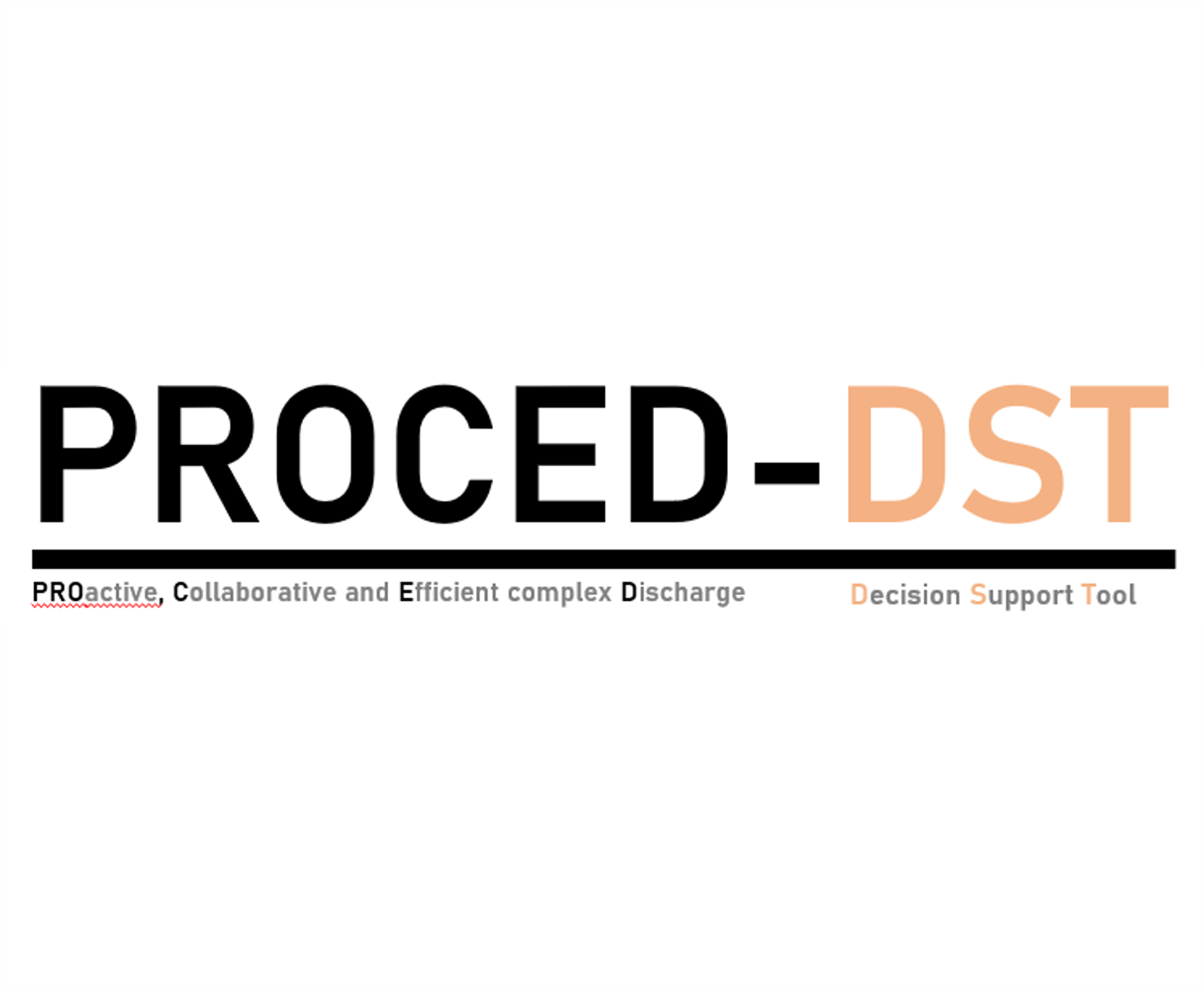PROCED-DST

PROactive, Collaborative and Efficient complex Discharge - Decision Support Tool
Health & Wellbeing Artificial IntelligenceProject Background
As of January 2023, 14,436 patients a day (14% of total capacity) remained in hospital despite being well enough to leave. This is due to delays in arrangements for onward care. Discharge delay occupies beds putting pressure on a wide-range of NHS services. There are currently 7.6 million patients waiting for treatment and an average waiting time of 15 weeks. Leaving hospital at the right time is also better for patients for many reasons. It reduces physical and mental deconditioning and chance of hospital infections.
Part of the problem is organising further care required after a hospital stay. For patients in hospitals for seven days or more, 65% are delayed because they are waiting for after-care including care at home, short-term reablement and permanent care or a nursing home.
Discharge planning involves lots of people and organisations from patients through to clinical teams in hospitals, community care, and local authorities. Organising care takes time considering the availability of social care services and mediation with patients and their families. It is therefore important that patients are assessed, and needs identified as early as possible within a hospital stay to give time for planning and conversations.
An initial discharge assessment is supposed to be made with the first 24 hours of hospital admission. In practice this planning is provided for less than 50% of patients. Staff workload and inability to identify care requirements can delay assessments
Project Approach
Aim: In a previous project called PROCED, we developed a machine learning model to predict onward care needs when someone is admitted to hospital. Machine learning is a computer programme that can learn from information about patients and the services they use to make predictions. We have compared the model against predictions made by clinicians, and the results have shown it works well. In PROCED-DST we aim to investigate how a machine learning prediction can support better discharge planning. By planning care earlier during hospital stays gives more time for patients and families to discuss care needs with care workers. Ultimately we aim to improve the chance that patients can leave hospital on time.
Approach: We will consider how a computer algorithm can help clinicians organise onward care by predicting admitted patient’s potential onward care needs. We will organise collaborative sessions with clinicians, patients, and computer programmers to understand how it could be used in the hospital and consider how it may benefit or impact patients.
Patient and Public Involvement: Patients and Public will be directly involved in designing, testing and evaluating a decision support tool and help decide how it should be used by care providers to help plan onward care. PPI will influence data usage, patient journey, algorithms and how this should be communicated. The public will participate in a steering committee who will organise a series of workshops to engage patients and public in the research.
Dissemination: Communication materials will engage the public and decision makers. We will work with PPIE support networks to develop accessible communication and ensure distribution to diverse communities. Evidence of effectiveness, safety and acceptance will be published. A decision support tool with computer-based decision support will be demonstrated. The outcomes will be championed with institutional, regional, and national implementation teams.
IT Innovation's Role
IT Innovation leads of the project and all aspects of codesign and machine learning model development.
Project Funding

For more information please visit the PROCED-DST on the NIHR Wessex ARC website or Contact Dr Chris Duckworth the Principal Investigator for the project.